Video: Brian Tokar at the Oslo Ecological Challenges conference
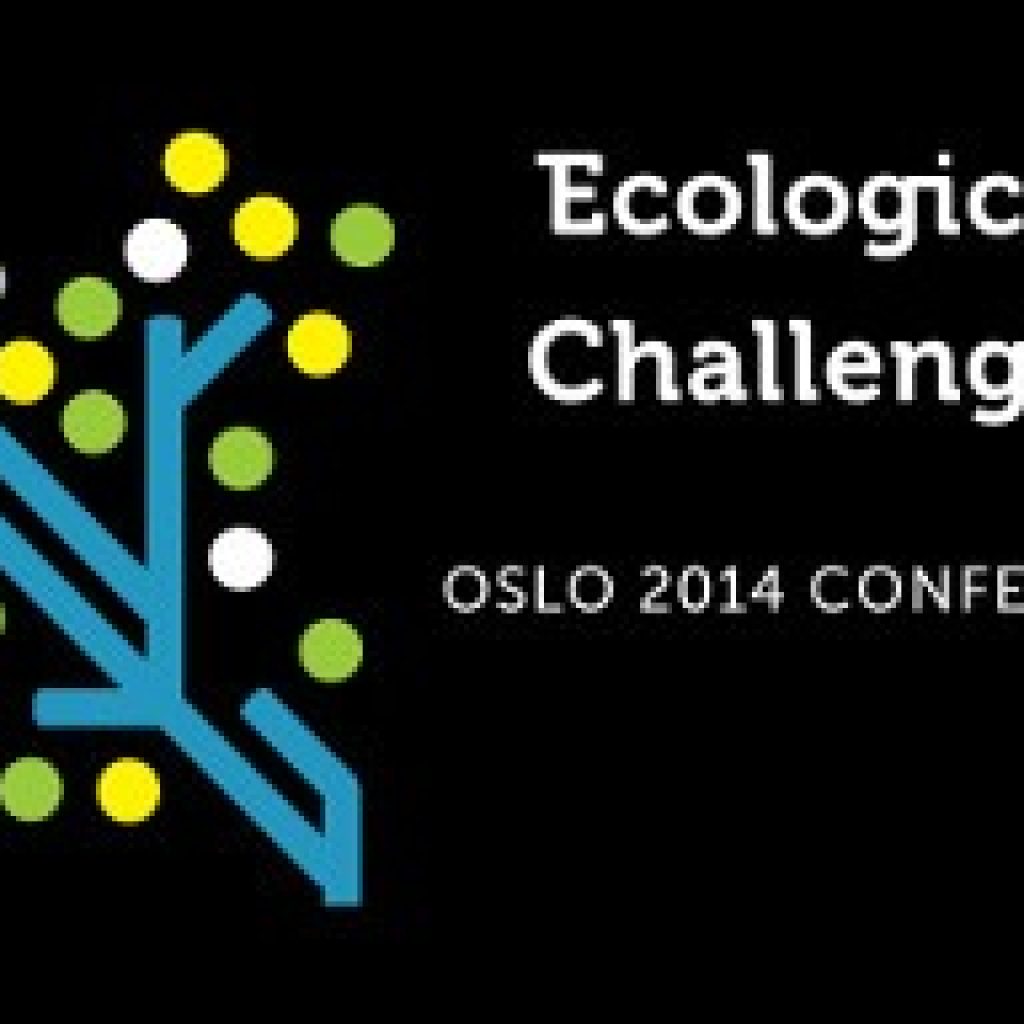
The New Compass has just posted a video of Brian Tokar’s presentation from last September in Oslo, titled “Climate Change as a Challenge to Democracy.” This was the opening session of the 3-day Ecological Challenges conference at the University of Oslo, and included a panel of academic and activist respondents to the opening talk. In […]
Brian Tokar: Defying Apocalypse
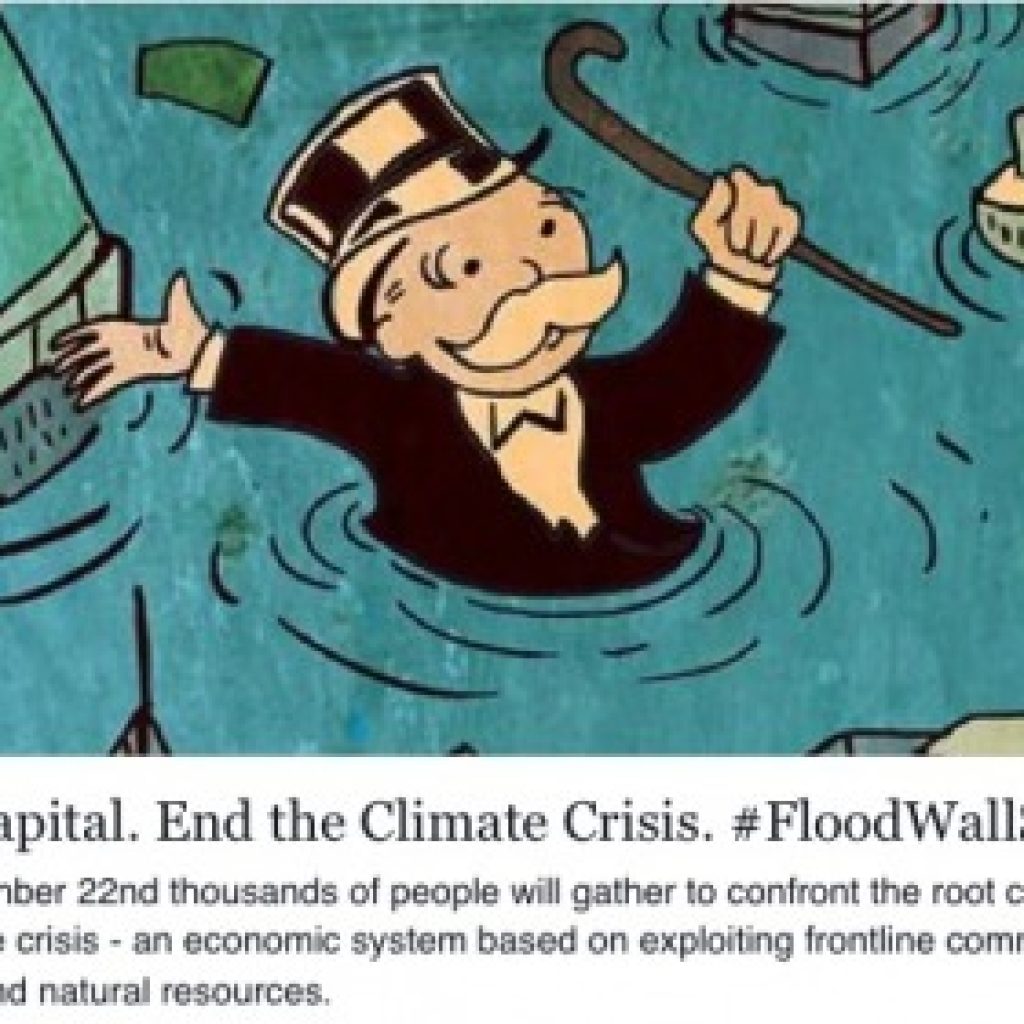
This commentary appears on the occasion of the forthcoming “Apocalypse Now?” issue of the Occupied Times of London, as well as the People’s Climate March in New York City and events before and after, and also the publication of the newly revised and expanded edition of my book, Toward Climate Justice. It also appears on […]
More links on Kurdish communalism
I originally added a series of updated links as a comment to our earlier post on this topic, but there are now enough of them to easily justify a new post: • Surprising coverage of this story on (commercial) British TV this week: www.channel4.com/news/pkk-kurdistan-workers-party-islamic-state-kurdish-spring! • Also a current on-the-scene report: rojavareport.wordpress.com/2014/09/01/village-communes-emerging-in-colemerg. • An earlier account, […]
Recent articles (Winter 2014)
2 recent posts to the ISE Blog contain links to new articles of mine that are featured elsewhere:
Myths of Green Capitalism
Dave Van Ronk vs. “Llewyn Davis”
I also have an extended essay and 2 short pieces in the book described here:
New international handbook of the climate change movement
And a chapter in this book, edited by Jeffrey St. Clair and Joshua Frank of Counterpunch:
Hopeless: Barack Obama and the Politics of Illusion
As well as this recent book from Food First, based in Oakland:
Food Movements Unite! Strategies to Transform Our Food Systems
Brian Tokar: Myths of Green Capitalism
An article from the Winter 2014 issue of the journal New Politics, based on a presentation at the 2013 Left Forum in New York City. Tokar examines the political and ideological origins of “market-oriented” approaches that aim to substitute permit-trading regimes for environmental regulation: The theoretical origins of carbon trading go back to the early 1960s, […]
“Apocalypse, Not?” by Brian Tokar
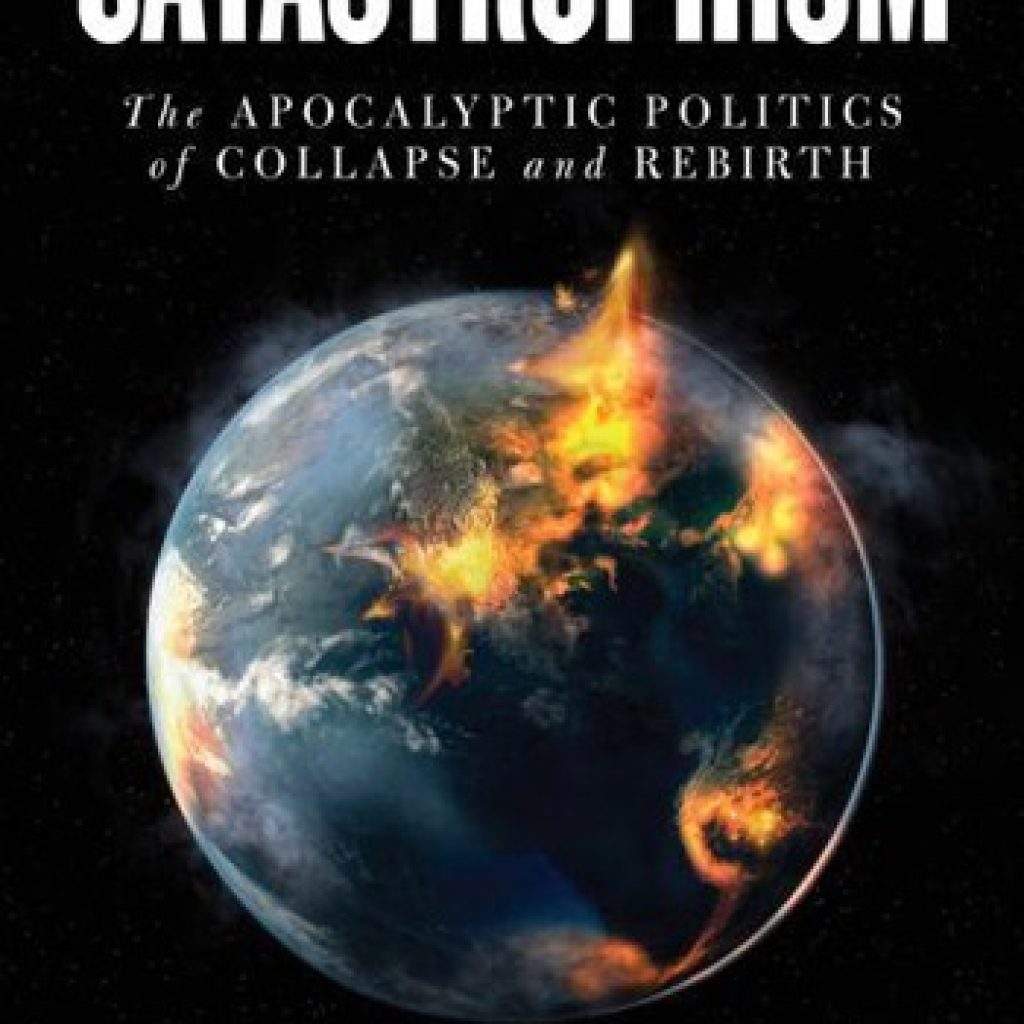
A review of Catastrophism: The Apocalyptic Politics of Collapse and Rebirth, by Sasha Lilley, David McNally, Eddie Yuen and James Davis (Oakland: PM Press, 2012, 178 pp.).
“Toward Climate Justice” now in Greek translation
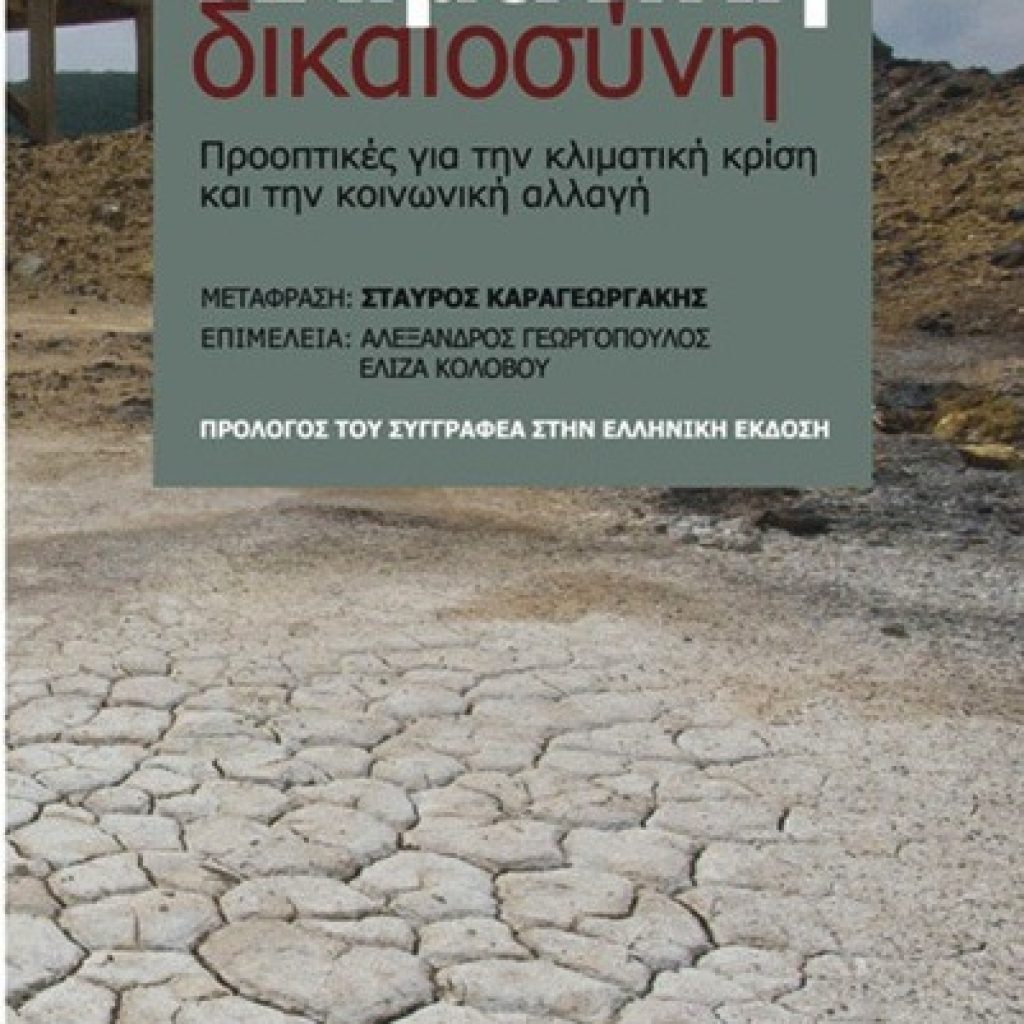
From Antigone in Thessaloniki, Greece, titled Klimatiké Dikaosyni. Translated by ISE alum, Stavros Karageorgakis, with editorial support from Alexandros Georgopoulos and Eliza Kolovou. More information will soon be online at http://www.antigone.gr. The original edition of my book, Toward Climate Justice: Perspectives on the Climate Crisis and Social Change, published by Communalism/New Compass Press, is still […]
Vermont towns say no to tar sands oil
Tuesday, March 5th was Town Meeting Day in Vermont and, following a long tradition of our towns taking a stand on issues of wider importance, at least 29 towns, including Montpelier and Burlington, overwhelmingly passed resolutions opposing the proposed transport of tar sands oil through our region. The resolutions also supported efforts to eliminate oil […]
New book: “Our Food, Our Right”
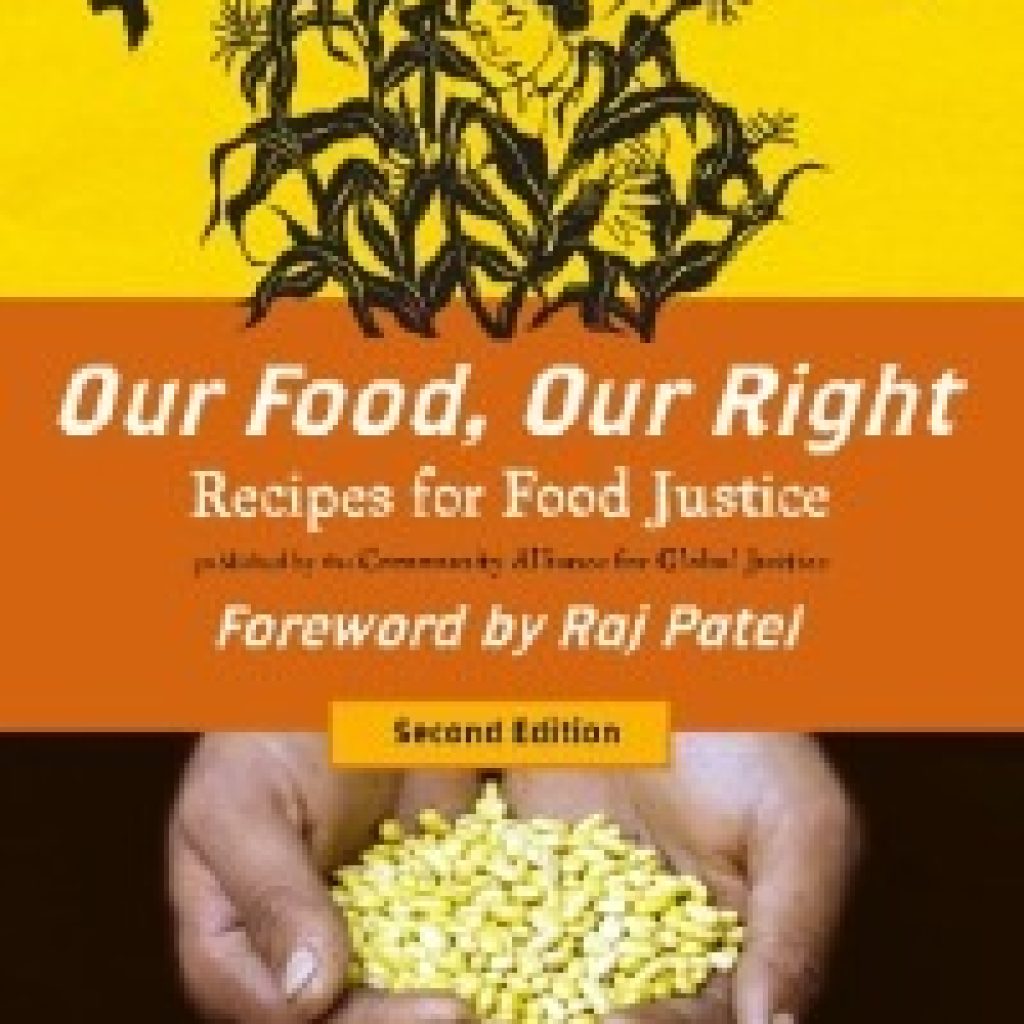
This outstanding introduction to today’s community-based food movements is designed by Annie Brulé of SEEDS, the social ecology project on Washington state’s Vashon Island. This review was written for the publisher’s website at seattleglobaljustice.org:
 Local food is all the rage these days, and rightfully so. People across the US are increasingly frustrated by the chemical-laden, processed calories that pass for food in most major supermarkets and are increasingly looking to alternative sources, from farmers markets and farm share programs to co-ops and natural food stores. But with food prices rising everywhere, healthy food is in danger of becoming even more of an elite niche market, accessible only to those with surplus income to spend. While some of us will pay more for food that is local, organic and fair-trade, many of our neighbors are often limited by shrinking household budgets to food that is nutrient-deficient, genetically engineered, and potentially hazardous to health.
Local food is all the rage these days, and rightfully so. People across the US are increasingly frustrated by the chemical-laden, processed calories that pass for food in most major supermarkets and are increasingly looking to alternative sources, from farmers markets and farm share programs to co-ops and natural food stores. But with food prices rising everywhere, healthy food is in danger of becoming even more of an elite niche market, accessible only to those with surplus income to spend. While some of us will pay more for food that is local, organic and fair-trade, many of our neighbors are often limited by shrinking household budgets to food that is nutrient-deficient, genetically engineered, and potentially hazardous to health.
What’s Next for the Occupy Movement?
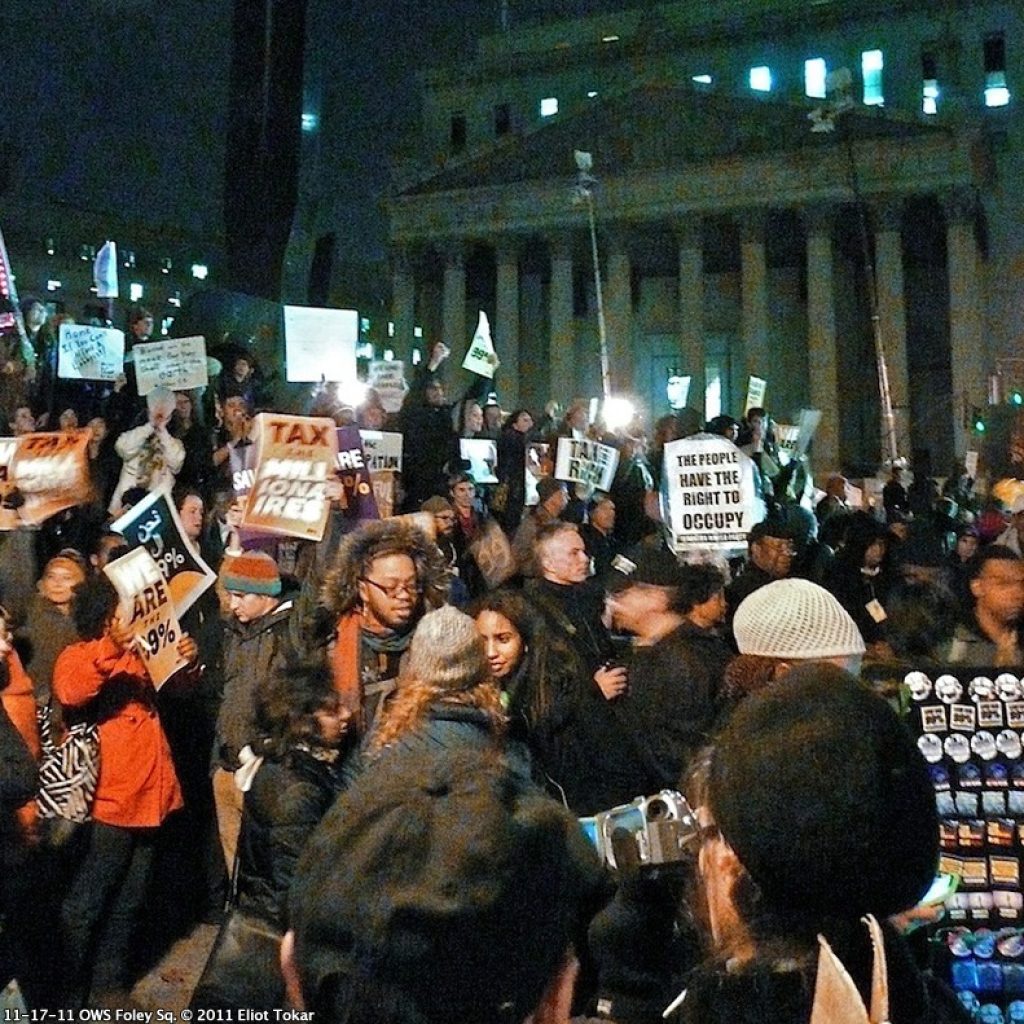
This commentary by Brian Tokar will appear in the winter issue of Broadcast, the newsletter of SEEDS, the Social Ecology Education and Demonstration School, based in Seattle and Vashon, Washington: Since mid-September, actions inspired by the Occupy Wall Street encampment in New York have awakened the imaginations of people worldwide. Just as the movement approached […]
